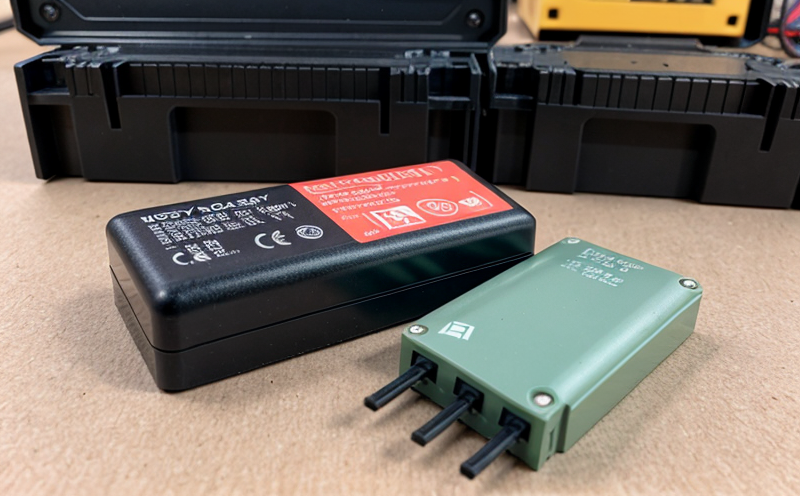KS C IEC 62660-2 Performance Testing of Lithium-Ion Battery Modules
The KS C IEC 62660-2 performance testing standard is an essential requirement for ensuring the safety, reliability, and efficiency of lithium-ion battery modules. This standard provides a comprehensive framework that covers critical aspects such as electrical performance, thermal stability, mechanical integrity, and more.
Lithium-ion batteries are integral to modern technology, powering everything from electric vehicles (EVs) to smartphones and power tools. Their performance directly impacts the overall system's efficiency and safety. The KS C IEC 62660-2 standard ensures that battery modules meet stringent international standards, thereby enhancing trust in their reliability.
The testing procedure outlined in this standard is designed to evaluate various parameters under controlled conditions, ensuring consistent results across different manufacturers and models. This consistency is crucial for quality assurance and regulatory compliance. The tests cover a wide range of scenarios, from high-current discharging to thermal cycling, which simulates real-world usage.
Quality managers and compliance officers can rely on the stringent testing protocols provided by this standard to ensure that their products meet the required standards. R&D engineers benefit from the detailed test procedures, as they provide insights into potential improvements in design and manufacturing processes. For procurement teams, this ensures that they are sourcing materials and components that meet international quality benchmarks.
The testing process involves several key steps:
- Initial inspection of battery modules for any visible defects or damages
- Safety checks to ensure no hazardous conditions exist before proceeding with tests
- Electrical performance testing, including charge/discharge cycles and internal resistance measurement
- Thermal stability tests, ensuring the battery can withstand extreme temperatures without compromising safety
- Mechanical integrity tests to check for durability under various stress conditions
- Cycling tests to evaluate long-term performance over extended periods
The results of these tests are meticulously recorded and analyzed. Compliance officers ensure that all findings align with the specified criteria outlined in KS C IEC 62660-2. This process not only enhances product quality but also ensures adherence to regulatory requirements.
| Use Case | Description |
|---|---|
| EV Manufacturer | To ensure that the battery modules used in EVs meet stringent safety and performance standards, thus enhancing overall vehicle reliability. |
| Battery Module Supplier | To demonstrate compliance with international standards, thereby increasing market competitiveness. |
| R&D Engineer | For evaluating new designs and materials to improve battery efficiency and longevity. |
| Regulatory Body | To enforce safety regulations and ensure that all products are safe for public use. |
| Safety Certification Agency | To validate the performance of lithium-ion batteries before they can be sold in different regions. |
The comprehensive nature of KS C IEC 62660-2 ensures that all aspects of battery module performance are thoroughly evaluated. This standard is widely recognized and accepted, making it a critical tool for manufacturers and suppliers looking to ensure product reliability and safety.
Why It Matters
The importance of KS C IEC 62660-2 cannot be overstated in today's highly regulated industry. Non-compliance can lead to severe consequences, including product recalls, legal issues, and damage to brand reputation. The standard plays a crucial role in ensuring that lithium-ion battery modules are safe and reliable, which is particularly important given the increasing demand for electric vehicles and renewable energy storage.
Compliance with this standard also opens up markets for manufacturers who adhere to international standards. It demonstrates commitment to quality and safety, which can significantly enhance credibility among customers and stakeholders. For R&D teams, it provides a benchmark against which new technologies and designs can be evaluated, ensuring continuous improvement in product performance.
The stringent testing protocols provided by this standard are vital for maintaining the high standards expected in today's competitive market. By adhering to these tests, manufacturers can ensure that their products meet or exceed international standards, thereby gaining a competitive edge in the global market.
International Acceptance and Recognition
The KS C IEC 62660-2 standard is widely recognized globally for its rigorous approach to testing lithium-ion battery modules. This standard is based on internationally accepted norms such as ISO, ASTM, EN, and IEC, ensuring that the tests are consistent across different regions.
Many countries have adopted this standard due to its comprehensive nature and reliability. It has been successfully implemented in various sectors including automotive manufacturing, renewable energy storage, and consumer electronics. The acceptance of this standard by international bodies underscores its importance and relevance in the global market.
The widespread adoption of KS C IEC 62660-2 is a testament to its effectiveness in ensuring product quality and safety. By adhering to this standard, manufacturers can gain confidence that their products will meet regulatory requirements and perform reliably under various conditions. This recognition also enhances the reputation of compliant entities within the industry.





